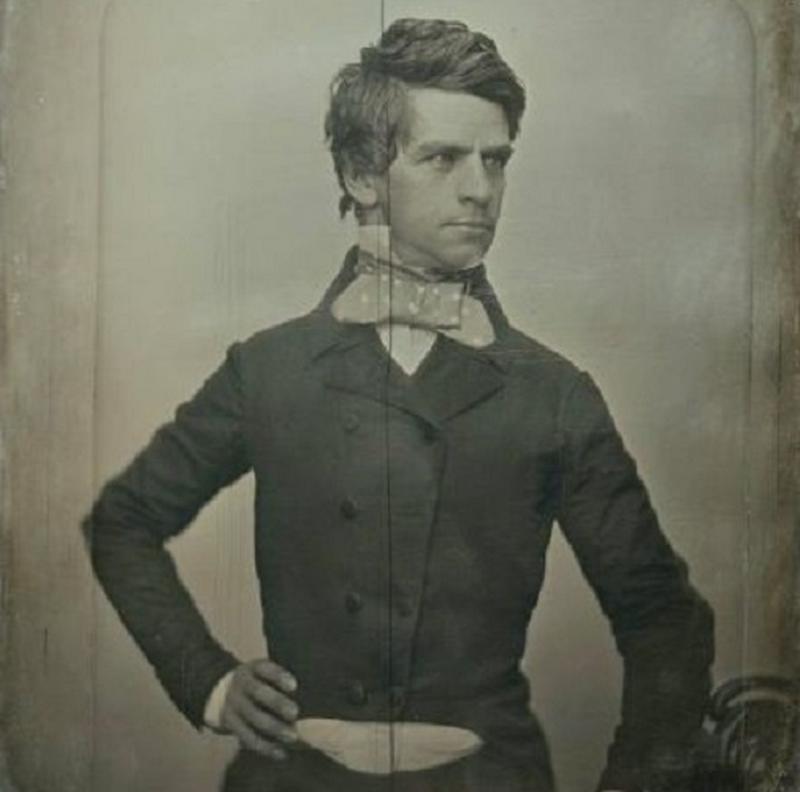The Longest Election For Speaker Of The House
By Linda Speckhals | January 6, 2023

Most of the time, the selection of the Speaker of the House is straightforward, being settled with a single vote. Historically, prior to the 118th Congress, there were only 14 instances of the election of a Speaker requiring multiple ballots. Of those 14 occurrences, 13 happened before the Civil War, when party affiliations were a bit looser, while the last one happened in 1923. The most contentious election of a Speaker occurred in 1854-1855; eventually, Nathaniel Banks won the seat.
Nathaniel Banks Was A Self-Made Man
Nathaniel Banks was born on January 30, 1816, in Waltham, Massachusetts. At 14, he had to take a job in a mill, and because of his work there, he became known as Bobbin Boy Banks; this nickname stuck with him. However, he continued to read, attended company-sponsored lectures, took up acting, and formed a debate club with other mill workers.
The Democratic Party Noted His Speaking
He was noticed by the Democratic Party when he spoke at local temperance party events; impressed, they asked him to speak at the Democratic campaign events during the 1840 election. Banks, who tried to present himself as coming from a more aristocratic background, was able to use his good looks and his flair for presentation to help him move ahead in the political sphere. When he found success as a speaker, he quit his job at the mill, working as an editor for two political newspapers; after they failed, in 1844, he ran for a seat in the state legislature, but lost. He lost after a second run in 1847 as well.

He Was A Political Chameleon
In 1848, he finally succeeded in his run for the state legislature. At first, he had moderate opposition to the expansion of slavery, but since the abolitionist movement was growing, he recognized this as an opportunity for political advancement. He became part of a coalition with the Free Soil Party and together, they gained control of the legislature and governor’s chair.
With the support of the Free Soil party, he managed to win a seat in Congress in 1852. After the dissolution of the allegiance with the Free Soil Party in 1854, he joined the Know Nothing cause, which at that time was a secretive populist and anti-immigration nativist movement; he also demonstrated anti-slavery leanings, as he spoke in Maine at an anti-slavery rally during the summer of 1855, when he made comments indicating that under certain circumstances it was not necessary to preserve the Union.
The Situation In The House
Democrats lost their majority in the House in 1855, as they held only 35% of the seats, and the election for Speaker was a bit chaotic. The sectional lines between northerners and southerners had hardened, and the Whig Party was moribund. That year, the Know Nothings also made gains, winning 51 seats. The Republican Party, which had gotten its start in 1854, was trying to build a coalition. As the Baltimore Sun commented on the situation on the eve of the 34th Congress, “It is a difficult matter to give the exact political complexion of the House.”

Deadlock
The mood concerning who would become the Speaker shifted from uncertainty to deadlock. During the first of four votes on Monday, December 3, 21 members received votes. On Tuesday, they held five votes, and for the rest of the week, they held six votes each day. They took Sunday off, before starting again. The pattern repeated throughout the rest of December, and after 84 votes, the month ended without a Speaker.
It Persisted Through January
On January 11, Felix Zollicoffer of Tennessee, a Whig who was part of the American Party introduced a bill he hoped would speed the process along. He proposed that each of the main candidates for Speaker should state their opinions about Congress’ recent actions regarding the spread of slavery. Zollicoffer’s bill passed, and he asked three questions, focusing on the Kansas-Nebraska Act, the Wilmot Proviso, and whether the Constitution facilitated the spread of slavery into the territories and protected it once it had been established. Over the course of the three-hour session, other Representatives asked questions as well. After all of this, they voted once again, but still, no one had a majority.
Banks Was A One-Term Speaker
It took three more weeks, and a total of 133 votes (and the decision to lower the threshold for victory to a plurality) for the House to elect Banks to be the Speaker. However, by the time the 35th Congress convened in December 1857, although Banks was reelected to his seat, Democrats regained control of the House, and Banks was not nominated to be Speaker again. After this, he became governor of Massachusetts, and in 1861, Lincoln appointed him to be a major general, despite his inexperience.